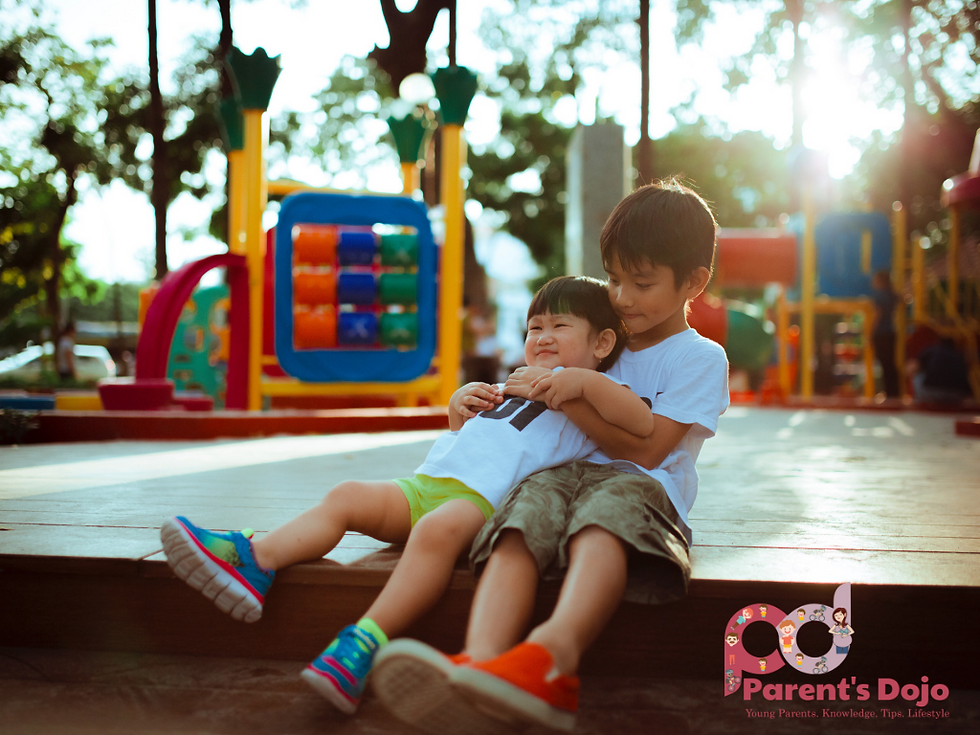Raising Assertive Kids
- Janice Zheng
- Sep 10, 2018
- 3 min read

If you were to watch a random group of toddlers playing, you would be quite likely to see them exhibiting behaviours such as pushing, hitting and taking toys from each other. Toddlers are learning about the world around them, they are learning right from wrong, and also social conduct so that they know what sorts of behaviours are accepted, and what are not. As parents, it’s our responsibility to help them navigate problem solving and conflict resolution. What happens though, if your child is a little bit on the reserved side? Teaching your child to be assertive is not the same as giving them the green light to being rude or obnoxious. As important as it is to teach children to be gentle and respectful of others, it’s also important that they learn not to be a pushover, to stick up for themselves and be assertive, should the situation call for it.
Talk to your child about boundaries. Not just boundaries that apply to her in terms of restricting her behaviour, for example, she should know that it’s not ok for her to push another child. Equally so, if she has been pushed by another child, she’s well within reason to tell the other child that it was not ok, or to inform the child’s carer of what happened. Building your child’s confidence starts from a young age, and as parents we should try as much as possible to always let our children feel safe and secure in expressing their emotions. It is common for us to want to put an end to any negative emotions in children, such as if they’re whining or crying. It can be a hard habit for us to break, but it’s important for us to recognise that even from a young age, children should be allowed to express a whole spectrum of emotions. After all their feelings and thoughts are of value too, and it’s ok for them to be angry or sad, just as it’s ok for them to be happy.
Another important way to teach children to have confidence and be assertive is to be assertive yourself. Taking everyday situations and handling them in the right manner can create a good learning opportunity for your child. Were you at a restaurant where the service was poor and they overcharged you? It’s a common enough scenario. Some people react by getting annoyed and making a big fuss; others might leave the store and seethe in anger without ever letting the management know; others might decide to provide constructive feedback in a polite but direct manner. Through your own personal conduct and choices, you could show your children that being assertive doesn’t mean that you need to be pushy or loud or passive aggressive. You just need to make your point.
We live in a society that values extroversion. If your kid is on the introverted side, it is likely that she will not be willing to speak up. In this case, talk to your child about the importance of standing up for one’s self. She may not always want to be vocal about her thoughts, perhaps she would rather think them through before making them known, and that’s a good way to encourage her to be more assertive, while not making her feel like she’s been put on the spot. For children who are a little more shy/reserved, letting them know that a responsible adult is always available to talk to will give her more confidence. She might just need a little bridge to help her to gain control of what’s happened. Going back to the example of being pushed at a playground. While an extroverted kid might simply turn around and say, “hey you hurt me, stop that!” A quieter child might need the help of an adult present to help diffuse the situation. With the adult’s guidance, a quieter kid can still be made to feel that she’s being heard and that a situation is being handled, without the pressure of being the one to call the shots.

Janice Zheng is a Melbourne-based writer and editor. Born and raised in Singapore, she has also lived in Vietnam, China and Australia. She has written and edited across a variety of genres including hard news, feature articles, technical and specifications writing and press releases. Her coverage of a 2009 Australian oil spill disaster and its impact on the marine environment earned her a nomination to the Professional Online Writers Guild. In 2013, her family moved to China for her husband’s work. She joined the expatriate women’s volunteer-based society and wrote prolifically for its print publications and contributed to other expatriate magazines. Since her return to Australia, Janice has turned to writing and blogging about parenthood.













































Comments